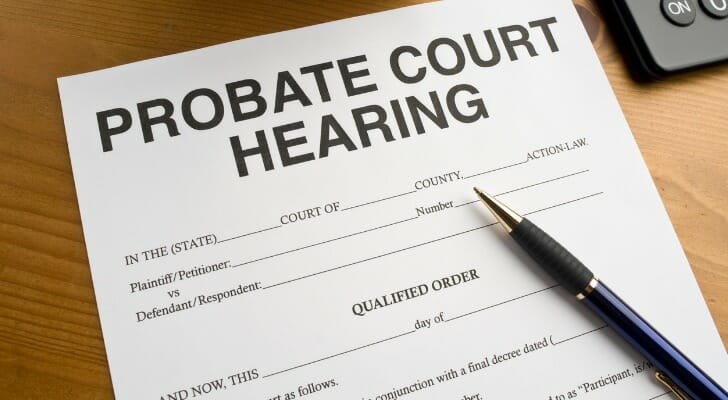When planning your estate, you should know who your heirs at law are and what that means if you die without a will or trust. An heir at law is someone who would inherit your property under state law if you pass away intestate. The rules vary by state, so it’s helpful to understand who qualifies and what rights they have to your estate.
A financial advisor can help you organize your estate plan and coordinate how your assets will be passed to your chosen beneficiaries.
What Is the Meaning of Heirs in Law?
Heirs in law or heirs at law refers to anyone who has a legal right to inherit the assets of another person when that person dies without a last will and testament in place. In simple terms, heirs at law are the people who get your assets if you die intestate.
Every state has laws regarding intestacy. These laws dictate who can inherit your assets if you pass away without a legal will and how much of your estate each person is entitled to receive. If you die intestate and the state is unable to locate your heirs in law, then the state holds on to all of your assets until an heir comes forward.
Who Are Considered Legal Heirs?
Each state defines heirs at law differently. But generally, heirs in law follow a hierarchy starting with people who have the first right of inheritance. They’re followed by the people who have the next right of inheritance and so on.
Here’s what a typical order of inheritance may look like for someone who dies intestate:
- Spouse
- Children
- Parents
- Siblings
- Nieces and nephews
- Grandparents
- Aunts and uncles
- Cousins
This order assumes that the deceased person was married. If they were not married, then the probate court would look to their children next as heirs at law. If they had no children, then their parents would be next in line to inherit. If both of their parents are deceased, then their siblings would be the next heirs at law.
The probate court would continue generation by generation until they’re able to find someone who is the deceased person’s legal heir. But do stepchildren or foster children count as heirs at law? Typically no, unless they were formally adopted by the person who passed away. Common-law spouses and domestic partners may or may not be treated as heirs at law, depending on the laws of the state in which the couple lived.
States follow the intestacy laws for where the deceased person lived when determining heirs at law. It’s possible that some of your assets may be subject to another state’s rules in certain situations, however. If you lived in Massachusetts but owned a vacation home in Florida, for example, that property may be subject to Florida’s probate laws instead.
What Rights Do Heirs at Law Have?

If someone passes away without a will in place, the heirs at law have some important rights. First, they must be notified of the probate process. Probate is a court-supervised process of validating the will of a deceased person, known as a decedent. It involves identifying the person’s final assets, paying their last debts and distributing their estate’s property to the proper heirs.
The executor is in charge of overseeing this process. You can name an executor in a will but if you have no will, anyone can petition the probate court to become executor, including an heir at law.
Heirs at law also have the right to challenge the terms of a will if the deceased person does leave one behind. This may be necessary if an heir at law is excluded from someone’s will in violation of state probate laws.
So, say that you’re married but you’ve been separated from your spouse for several years. You draft a will leaving the entirety of your estate to your children. Since all state probate laws allow legal spouses the right to inherit, your estranged spouse could file a civil case to claim their share of assets. If the court agrees that they’ve been unfairly excluded from your estate, they can be awarded an amount that’s equivalent to what they’re entitled to under your state’s probate laws.
Who else can challenge a will? The short answer is that any heirs at will with legal standing could choose to do so. Again, if an heir believes they’ve been unfairly excluded they could raise an issue with the will in probate court.
How to Protect Heirs at Law
If you know who your heirs at law are, the easiest way to protect their inheritance rights is to draft a legal will. A will is a legal document that allows you to specify who you want to inherit your assets and which assets you want them to inherit. You can also use a will to name a legal guardian for minor children.
Drafting a will won’t supersede inheritance laws for certain heirs. For example, you can’t use a will to disinherit a spouse but you may be able to disinherit a child or another heir. If you’re ready to make a will you can do so with the help of an estate planning attorney. But it’s also possible to draft a will online using affordable will-making software.
You can take estate planning one step further by establishing a trust. A trust allows you to transfer assets to the control of a trustee who’s charged with managing them on behalf of one or more beneficiaries, according to your wishes. You might consider establishing a trust if you have a larger estate and you want to leave specific instructions for how assets are to be managed. Certain types of trusts may also yield tax benefits for estate planning.
Heirs at Law vs. Beneficiaries
Heirs at law and beneficiaries are not the same thing, though people often confuse the two. Heirs at law are determined by state intestacy rules. They are the people who inherit your property if you die without leaving a valid will or trust. Beneficiaries, on the other hand, are people you name directly in legal documents like a will, trust, or a financial account with a transfer-on-death or payable-on-death designation.
Beneficiaries take priority over heirs at law because their names are written into binding contracts. For example, if you name your niece as the beneficiary on a life insurance policy, she receives that payout no matter what your will says. Even if intestacy rules would normally direct the money to your spouse or children, the insurer must honor the beneficiary designation on file.
This difference often comes up with retirement accounts, bank accounts and insurance policies. While a will may say one thing, the account paperwork usually controls. That means it’s important to review and update your beneficiary designations regularly. A divorce, remarriage, or the birth of a child can create conflicts if old beneficiaries remain on file.
Disputes sometimes happen when heirs at law expect to inherit but are excluded by beneficiary designations. For example, a parent might leave a will giving everything to their children but forget to update an old 401(k) that still lists a sibling as the beneficiary. In most cases, the sibling gets the account, and the children cannot override that designation without showing fraud, mistake, or lack of capacity.
The safest way to avoid these conflicts is to coordinate your estate planning documents with your account records. Wills and trusts should align with the beneficiaries you list on retirement plans, insurance policies, and bank accounts. Taking time to review everything together reduces the chance of heirs at law and named beneficiaries ending up at odds after your death.
Bottom Line
Heirs at law is simply another way of referring to the people who could inherit your estate if you were to die without a will. Drafting a will can help your heirs to avoid legal and financial headaches after you pass away. And it’s also important to understand what your rights are as an heir at law if a family member should pass away.
Estate Planning Tips
- When planning your estate, it’s important to consider any circumstances or situations that might lead to issues for your heirs. For example, say that you remarried after divorce. If your spouse has children, where will they fit into your estate plan alongside your own children? Or if you have a domestic partnership but are not married, how might that affect your partner’s ability to inherit? Talking with an estate planning attorney can help you to smooth the inheritance path for your heirs.
- Consider speaking with a financial advisor about the potential tax implications your heirs might face and how to minimize them through estate planning. Finding a financial advisor doesn’t have to be hard. SmartAsset’s free tool matches you with vetted financial advisors who serve your area, and you can have a free introductory call with your advisor matches to decide which one you feel is right for you. If you’re ready to find an advisor who can help you achieve your financial goals, get started now.
Photo credit: ©iStock.com/tumsasedgars, ©iStock.com/KLH49, ©iStock.com/coffeekai

